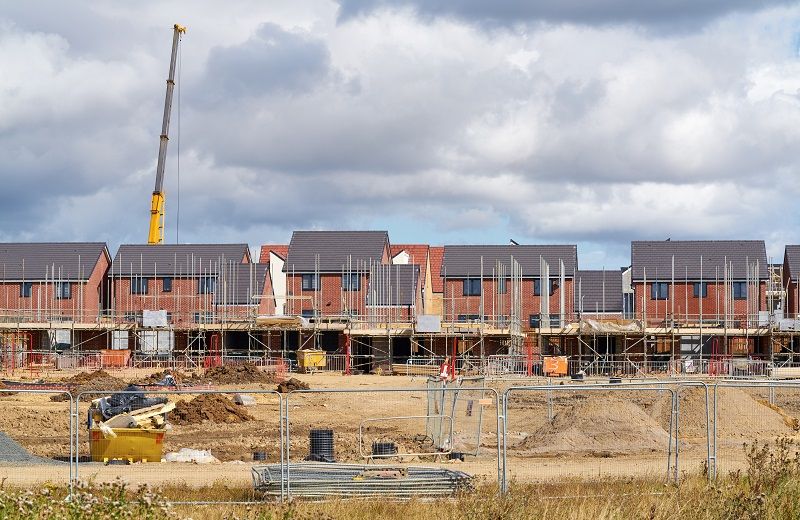By John A. Charles, Jr.
The Tigard City Council is going through the motions of adopting a new land use plan for the 827-acre area known as the Washington Square Regional Center. When adopted, it will replace the existing plan, which was approved in 1999.
If you were not aware that there was a “regional plan” for the Washington Square neighborhood, there’s a good reason: It was never implemented. The 1999 plan was based on the mythical concept of “transit-oriented development” and featured architectural renderings of 20-story towers at the mall, enhanced transit service, and bike/pedestrian bridges crossing HW 217.
None of this had any connection to reality, so it didn’t happen. The proposed new plan makes the same mistakes.
The whole concept of a Regional Center was invented by planners at Metro in the process of drafting the 2040 Concept Plan, which was adopted in 1995. That plan sought to ensure that the Portland region would “grow up, not out” over a 45-year period, with transportation investments focused on transit, bicycling, and walking. Implementation was based on a cascade of large to small “centers.” At the top of the food chain were eight regional centers, followed by dozens of smaller town centers and station communities focused around light rail stops.
The eight regional centers are: Gateway, downtown Hillsboro, Tanasbourne/AmberGlen, downtown Beaverton, Washington Square, downtown Oregon City, downtown Gresham, and Clackamas Town Center. According to Metro, these areas are characterized by two- to four- story buildings served by high-quality transit.
Although Metro held dozens of hearings on the 2040 concept and pretended to take public input, the planners never really cared what citizens thought. The overriding policy goals were: (1) get people out of their cars; and (2) shift most families from single-family homes into apartments located near transit lines.
Predictably, this failed, and it failed spectacularly at Washington Square. The 1999 plan envisioned high-density development in the unincorporated neighborhoods of Metsger, which was then—and still is—characterized by single-family homes. People living in those homes have always resented being written out of existence by planners.
The Regional Plan also assumed that too much land at the mall was wasted on parking and should be redeveloped into high-rise buildings. But people who actually shop at the mall think parking is important, and there was never a viable plan to pay for the dreamy towers.
When TriMet was planning for the WES commuter rail line, which opened in 2009, there was a lot of excitement about having a Washington Square stop. But the Hall Boulevard WES station is so far from Washington Square it’s irrelevant. And since WES only runs in the morning and afternoon, and not at all on weekends, it was never plausible that the train would change travel behavior in that neighborhood.
Between 1995 and 2021, Metro, TriMet, and the City of Portland conspired to waste billions of tax dollars building light rail and the streetcar in support of Regional Centers, but transit ridership never became significant. It was especially low within the Regional Centers. TriMet’s ridership peaked in 2012 and steadily declined thereafter. Once the pandemic hit, transit ridership dropped by more than half and has not recovered.
The new Washington Square Regional Plan now under consideration scales back the vision of high-rise towers, but still embraces the failed principles of “transit-oriented development.” The primary focus is on more housing, everywhere. But once again, the plan ignores consumer preference and market reality. The region is auto-oriented and features low-rise buildings, because that’s what most people want. The reason land-use plans tend to fail is because it’s impossible to know what the best use of every parcel of land is. That can only be determined through the dynamic market process. We would all be better off if Tigard and other cities began repealing their zoning codes for “regional plans” and simply allowed land to be developed based on whatever the market will bear.
John A. Charles, Jr. is President and CEO of the Portland-based Cascade Policy Institute, Oregon’s free market public policy research organization. He can be reached at john@cascadepolicy.org. A version of this article was published in the Portland Tribune.













Nancy Jones
It would be nice if city planners had to have a requirement of a business degree before they make decisions for a region. A lesson in economics and taxes would do a lot of good. Now that county commissioners are paid 110k a year with car, phone and an assistant on a high school degree, you better bet we will get more hair brain ideas that are whimsical in nature with spending like it’s free. Oh yah, this sounds like AOC and Bernie and their green new deal!